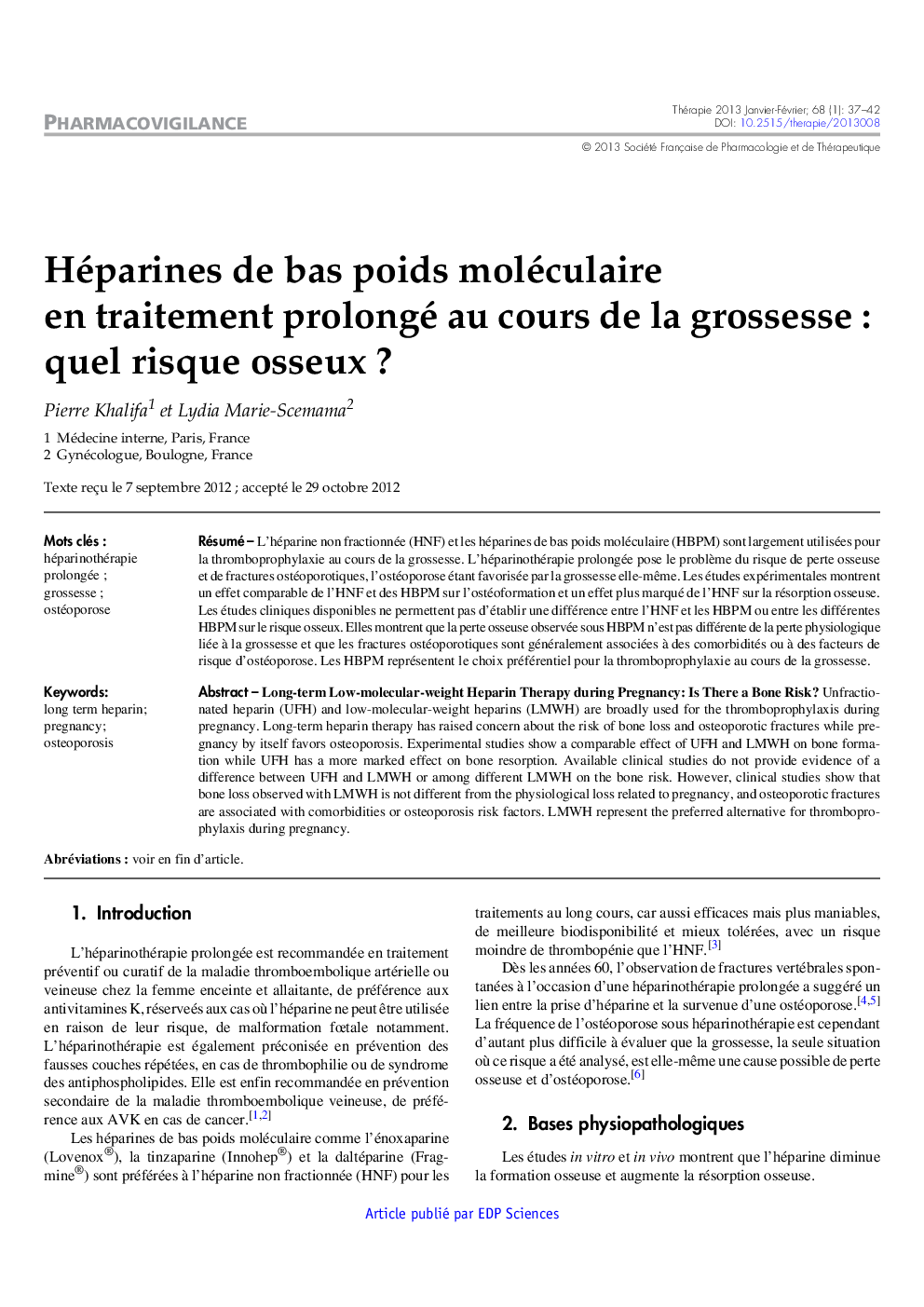| Article ID | Journal | Published Year | Pages | File Type |
|---|---|---|---|---|
| 2578973 | Thérapie | 2013 | 6 Pages |
Abstract
Unfractionated heparin (UFH) and low-molecular-weight heparins (LMWH) are broadly used for the thromboprophylaxis during pregnancy. Long-term heparin therapy has raised concern about the risk of bone loss and osteoporotic fractures while pregnancy by itself favors osteoporosis. Experimental studies show a comparable effect of UFH and LMWH on bone formation while UFH has a more marked effect on bone resorption. Available clinical studies do not provide evidence of a difference between UFH and LMWH or among different LMWH on the bone risk. However, clinical studies show that bone loss observed with LMWH is not different from the physiological loss related to pregnancy, and osteoporotic fractures are associated with comorbidities or osteoporosis risk factors. LMWH represent the preferred alternative for thromboprophylaxis during pregnancy.
Keywords
fausse couche spontanéeAVKReceptor activator of nuclear factor kappa BAnti-vitamines KHBPMSAPLADNacide désoxyribonucléiqueDMOpTHATIIIFCSHnfEmbolie pulmonairePregnancyGrossesseDensité minérale osseuseRankSyndrome des antiphospholipidesFracture vertébraleHéparine de bas poids moléculaireParathormonePost partumOstéoporoseOsteoporosis
Related Topics
Health Sciences
Pharmacology, Toxicology and Pharmaceutical Science
Pharmacology, Toxicology and Pharmaceutics (General)
Authors
Pierre Khalifa, Lydia Marie-Scemama,
